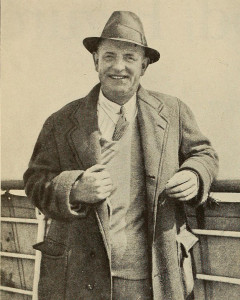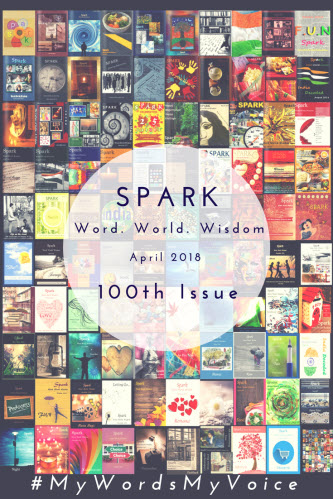by Ajay Ramachandran
‘Make him laugh and he will think you a trivial fellow, but bore him in the right way and your reputation is assured’ the English writer Somerset Maugham quipped, with characteristic grumpiness. In a curious inversion of the remark, P.G. Wodehouse’s reputation was assured precisely by making us laugh. Trivial writer? An array of writers as disparate as John le Carre, Eudora Welty, Douglas Adams, Orson Welles, Lynne Truss, Shashi Tharoor, and Christopher Hitchens, to name but a handful, doesn’t seem to think so. What is it in his works that brings forth such approbation (in some cases, geeky gush)? For one thing, there are the names – Bassington-Bassington, Fink-Nottle, Stanley Featherstonehaugh (pronounced Fanshawe) Ukridge, ‘Oofy’ Prosser, and Psmith (‘the p is silent, as in phthisis, psychic, and ptarmigan’). Right off the bat, they sound funny. The preoccupation with names may have been Wodehouse’s lifelong in-joke against his parents for giving him unusable names (he shortened Pelham Grenville to ‘Plum’).
Wodehouse is regarded by many as a masterful plot-maker. Quite paradoxically, once you get the hang of his works, they lend themselves well to fragmentary reading – just the right format for our frazzled, distracted age. You can read a chapter at random during screen-look-away breaks at work. There is, however, the possibility that reading descriptions of food may induce a craving that may stall your productivity for a while, as food is as much a pivotal presence as are Jeeves and Lord Emsworth, in his stories. Just sample a partial list of Bertie Wooster’s contemplative menu to be prepared by the French chef Anatole, that ‘God of the gastric juices’, in The Code of the Woosters:
Caviar frais
Cantaloup
Consommé aux pommes d’amour
Points d’aspereges à la Mistiguette
Suprême de foie gras au champagne
Nonnettes de la Maditerranée au fenoil
Salade d’endive et de celeri
Le plum pudding
Fruits
Naturally, members of The Drones Club are called Eggs, Beans, or Crumpets.
The utterly sui generis world of Wodehouse is extremely sensitive to artistic licenses, not to say cheap imitations. In a particularly painful portrayal, Bertie Wooster was played by David Niven in one film adaptation as a playboy, and a hapless one at that! Stephen Fry, the British comedian and writer, thinks Wodehouse works best in print and cites the following as proof:
‘Sir Jasper Finch-Farrowmere?’ said Wilfred.
‘ffinch-ffarrowmere,’ corrected the visitor, his sensitive ear detecting the capitals.
Fry and his collaborator, Hugh Laurie, played Jeeves and Wooster, respectively, in the much-acclaimed TV series that aired in Britain in the early 1990s. While surely refreshing, the success of the series could very well have been the result of a near-slavish reproduction of Wodehouseana, carried forward by two brilliant comic talents who were massive fans of the author themselves. The origination story of Psmith – not just any Smith but Psmith – confirms Fry’s point admirably. More importantly, how is it humanly possible for any actor to play Lord Emsworth? Or his precious sow, Empress?
The difference between the fan and the fanboy or fangirl is that the fan (we hope) stops short of wholesale canonization of their subject. An attempt is made herein at objectivity. We can all honestly agree that Wodehouse is not for everybody. The outlandish and idiosyncratic order of his world induces some, understandably, to dismiss the work as innocent twaddle, but twaddle nonetheless. Wodehouse operated a waterless planet that was barren of life as we know it. There are no deaths, except in cases where a character receives an unexpected inheritance from a dead relative. There is no sex absolutely.
Such unsparing remoteness from everyday life can tire even the faithful at times. Battling cancer, Roger Ebert, the late film critic said, ‘When I was still in hospital, I asked for P.G. Wodehouse, but for the first time he didn’t work for me. I found in the depths of the night that a dark novel such as Cormac McCarthy’s Suttree spoke to me.’ What about the writing itself? The critic Cyril Connolly said of Wodehouse, ‘No one has ever told P.G. Wodehouse which is his best book or his worst, what are his faults or how he should improve them.’ The answer, however, to this is: such an endeavor is not profitable or is inconsequent. Our grumblings can only consist of detecting signs of sluggishness in the plot (sometimes over-convoluted), repetitive phrasing that starts to flag (too much usage of the abbreviated f[emale] of the s[pecies] is more d[eadly] than the m[ale] type jokes), or the unwearying changelessness in general (Jeeves is always right, Bertie always wrong). Wodehouse’s achievement may ultimately lie in creating a genre of literature that is undeconstructable, uncriticizable, and, geographically unmappable.
At the Jaipur Literary Festival in 2017, there was a panel discussion on ‘Why India Loves Jeeves?’ In it, Shashi Tharoor cheerily recycled points he made in an earlier essay about Wodehouse. He said you can find Wodehouse’s books ‘sold on railway station platforms’ and that he ‘cannot think of an Indian family I know that does not have at least one Wodehouse book on its shelves.’ I have never seen Wodehouse sold in railway platforms then (1980/90s in Chennai/Tamil Nadu and occasional trips to Bombay and New Delhi) or now (a stout no). And I do know of several educated Indian families who do not have a single book by Wodehouse on their shelves, so to speak.
Coming back to the discussion, Swapan Dasgupta (another panelist) shot back at Tharoor that reading Wodehouse was mostly a privilege of the cloistered class (I’d say upper/upper-middle), and that neither his son nor his friends – the Gen Y-ers – read the author. I am inclined to agree with Dasgupta based on my own observations. I am yet to see the youngster who wolfs down Wodehouse with the same relish as with, say, the Harry Potter books.
It was ironic that the discussers consisted of three Indians who are alumni of St. Stephen’s, New Delhi, the poster boys for ‘elitism’, and one Englishman; all of them middle-aged men (getting there, in moderator Mihir Sharma’s case). Where are the women? My experience has been that, while I know some women who are fans, the m. of the s. handily outnumbers the f. If it has not already been explored, discussion must focus on how, for instance, women writers and/or black writers perceive the Wodehousean corpus. What did James Baldwin make of them? Or what does Arundhati Roy or Chimamanda Adichie think?
Robert McCrum, Wodehouse’s biographer, says in his book that the author is read by more people now (in 2004) than when he died in 1975. Much has changed since. We are in an increasingly pluralistic and an internet-of-things world. How can you give a teenager the Jeeves-Wooster stories without being confronted at some point regarding Bertie’s references to black minstrel musicians using the n-word? Both Wooster and Wodehouse may be innocent of racism, but it is a hard sell nonetheless. Today’s twenty-somethings have grown up with social media and its attendant pluses and perils. Technology, in addition to breaking down barriers, seems to break down sentences too. Hence I am skeptical about the continued popularity, if that, of Wodehouse, given the micro-narrative trend of today. That is not to say he will become extinct soon enough. For as long as Shakespeare and Dickens are read, Wodehouse will also be, in my opinion. We better not obsess about numbers.
I came to the writings of P.G. Wodehouse relatively late in life. Even though my dad’s sizeable collection of books included some by the author, I did not grow up reading them. It was in my late twenties, after I started to work full-time, that I actually got to read him. Jeeves and the Tie That Binds was my port of entry to that enchanting land. On a peaceful afternoon visit to Barnes & Noble, I noticed this slim book and decided it was about time. The encounter proved to be wildly contagious now that my bookshelves have two full rows of Wodehouses staring at me. I sure compensated for lost time by reading/re-reading most of his works. My absorbedness in his works induced in me a curious pastime: that of sniffing out his influences in far-off things such as the TV show Seinfeld and the films of the Coen brothers (they remain just theories as there is no evidence these writers read PGW). At a more local level, the works of Tamil humorist ‘Crazy’ Mohan clearly bear resemblances – in the wordplay, the plots, and the general unvulgar and innocuous atmosphere of the stories. Mohan himself has acknowledged the debt.
Reading PGW strengthened my love of words. The Wodehousean prose, for all its salient slang and unfailing inventiveness, was for me the perfect how-to on writing well. Bertie Wooster may be unsure of some of his expressions and words and what ho! away how much ever he wants to, but his sentences never deviate from the dictates of grammatical English. It did encourage me to take my writing seriously, and myself, not that seriously. It was only natural that I went on to find my helpmeet who was an enthusiast herself.
Picture from Wikimedia Commons.






